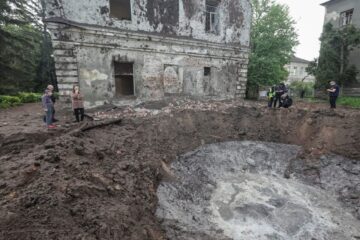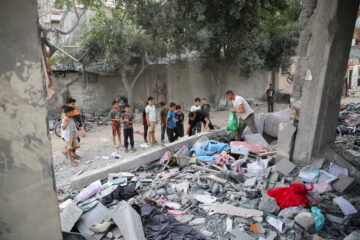Suicide bomber attacks Shiite mosque in Saudi
An Islamic State jihadist killed three people Friday when he blew himself up in a car outside a Shiite mosque in Saudi Arabia, the second such attack in a week.
The bombing, again coinciding with weekly Friday prayers, added to the distrust felt by among the Shiite minority of protection provided by security forces in the predominantly Sunni kingdom.
It was the third attack to target Shiites in the oil-rich Eastern Province where most of the country\’s Shiites live, and according to the interior ministry it killed three people dead and wounded four.
The suicide bomber — disguised in women\’s clothing — detonated his device at the entrance to the mosque during Friday prayers, the official Saudi Press Agency cited a ministry spokesman as saying.
"Authorities have managed to foil a terrorist crime targeting people performing the Friday prayers at Al-Anoud mosque in Dammam," the capital of Eastern Province, he said.
The bomber "detonated the explosive belt he was wearing at the mosque entrance as security officials were on their way to inspect him", he said, citing preliminary results of the investigation.
The explosion happened just as the attacker\’s vehicle stopped at a car park near the mosque, the spokesman said.
IS, in a statement distributed by jihadist accounts on Twitter, quickly said it was behind the attack, which it said was carried out by "soldier of the caliphate Abu Jandal al-Jazrawi".
It said the bomber managed to "reach the target despite heavy protection" outside the Al-Anoud mosque.
Friday\’s blast comes exactly seven days after the jihadist group sent a suicide bomber into another Shiite mosque in a village in Eastern Province.
Twenty-one people were killed in the May 22 blast, which was also claimed by IS.
Sympathisers of the Sunni extremist group are also accused by the Saudi authorities of gunning down seven members of the minority Shiite community last November.
Activist Nassima al-Sada, who arrived at the site right after the latest attack, said it the suicide bomber blew himself up after security volunteers tried to prevent him from entering the ladies\’ side of the only Shiite mosque in Dammam.
After the previous week\’s deadly attack, residents had set up security committees to search those entering mosques during prayers, witnesses said.
They added that the authorities had not themselves brought in any extra security measures around Shiite mosques despite the attacks.
Women were not allowed to pray at the mosque this week for security reasons, Sada said.
Frederic Wehrey, a Gulf analyst at the US-based Carnegie Endowment for International Peace, told AFP that "the attack may have been calculated to incite greater distrust among the city\’s residents.
"I think one dangerous result of these increased bombings is the Shiites\’ loss of faith in the security services, potential formation of local self-protection units or vigilantism."
Most of the kingdom\’s Shiite minority live in the wealthy east, but they have long complained of marginalisation.
Saudi King Salman has vowed punishment for anyone linked to last week\’s "heinous crime".
\’s top cleric, Grand Mufti Sheikh Abdul Aziz al-Sheikh, has called it a "criminal act" which targeted national unity.
Saudi Arabia and its Sunni Gulf neighbours last year joined a US-led military coalition waging a campaign of air raids against IS in Syria, raising concerns about possible retaliation in the kingdom.
Since late March, Saudi Arabia has also led a coalition that is bombing Iran-backed Shiite rebels who have seized large parts of Yemen and sent deadly shell and rocket fire across the border.
SOURCE: AFP
[do_widget_area inner_adsbar]











